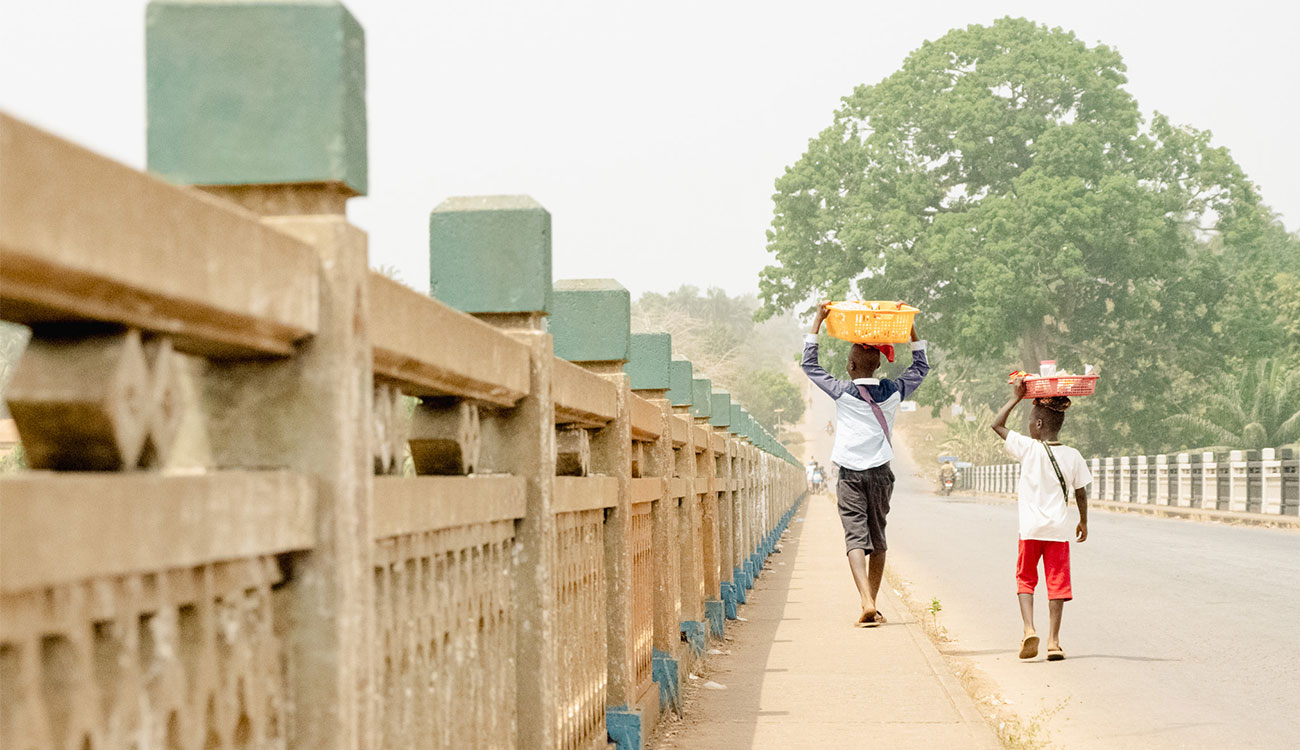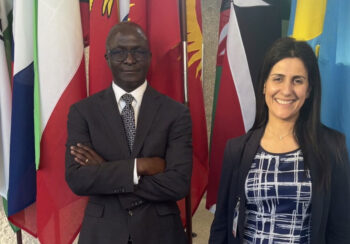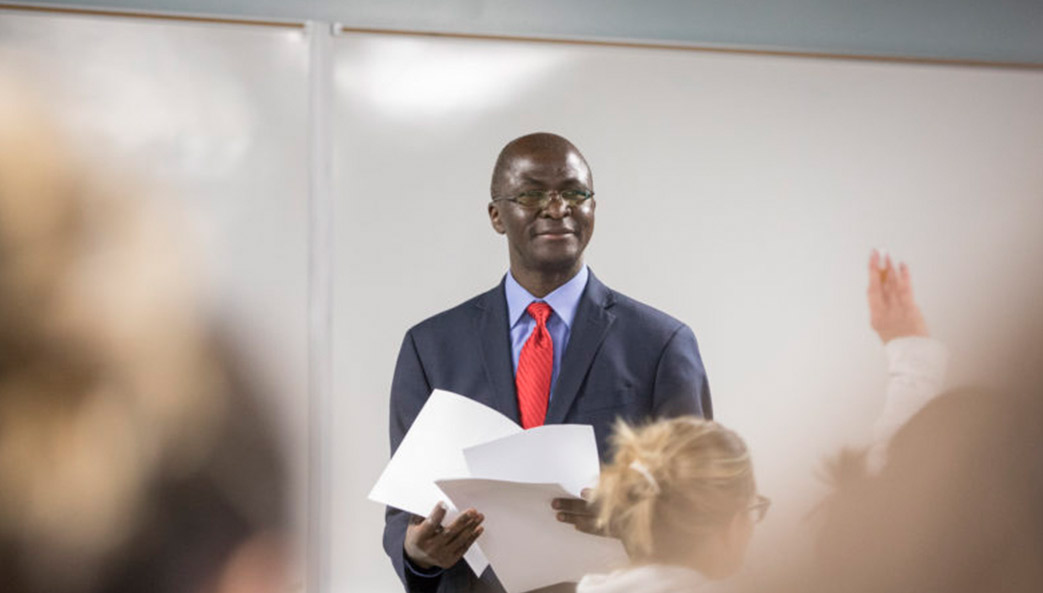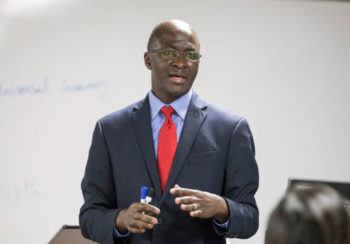Life in rural Sierra Leone offers few economic opportunities to parents like Baindu Momoh and even fewer to her children. Surviving through subsistence farming and small-scale trading, Baindu has struggled to feed and educate her daughter.
So when a distant relative living in a larger town offered to take Baindu’s daughter into her home and send her to school, Baindu felt relief. It was an opportunity for her child to secure a future and one fewer hungry belly for her to worry over.
But solace soon turned to dread. Instead of attending school, the girl was forced into domestic servitude. She suffered beatings when she protested her treatment. What happened to the girl constitutes human trafficking, which the University of Georgia’s Center on Human Trafficking Research & Outreach (CenHTRO) has been working to combat in West Africa and across the world.
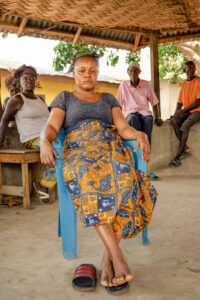
Informal fostering situations, in which a child lives apart from their biological parents, are common across Africa and have helped generations of children attend school and escape extreme poverty. But bad actors abuse the tradition, meaning children wind up being forced to work in agriculture or cleaning houses when they should be learning math and science. This is child trafficking, and CenHTRO research shows that in Sierra Leone’s Eastern Province, where Baindu lives, 33% of children under 18 have experienced a form of it.
When Baindu’s daughter mustered the courage to escape, she began a long walk back to her mother’s village, roughly 30 minutes by car down unpaved roads. Along the way, village leaders noticed the young girl walking alone and inquired about her condition. Having been trained to identify and respond to human trafficking by CenHTRO and its partners, the villagers notified local authorities. Cared for in a trauma-informed facility run by CenHTRO’s partner, the girl and her mother would soon find a path to healing.
This story is one of many demonstrating CenHTRO’s positive impact. CenHTRO has worked with the Sierra Leone government, affected communities and local organizations to ensure that child trafficking victims like Baindu’s daughter receive the care they need and to prevent future trafficking across the country.
To date, CenHTRO’s programs in Sierra Leone tripled the number of survivors identified and served. Nearly 2,000 government officials, judiciary and law enforcement members, and community leaders received training on how to prevent human trafficking. Investigations, arrests and prosecutions of trafficking cases increased. CenHTRO also helped influence national legislation in Sierra Leone and regional policies across West Africa to help protect all people from human trafficking for generations to come.
“We’ve made a difference at the highest levels of power and in the smallest village,” said CenHTRO Director David Okech, professor in the School of Social Work. “It has only been possible through dedication and cooperation of our local staff in Sierra Leone as well as the support of a local think tank that advises our work. CenHTRO staff and faculty have worked extremely hard to use a data-driven approach in reducing child trafficking in Sierra Leone.”
Evidence to action
Human trafficking affects people in every country. Some global estimates state the number of people trapped in human trafficking situations surpasses 40 million, a staggering figure that has helped raise awareness but offered little insight into how to solve the problem. Accurate data on the scope of the issue has been difficult to obtain, meaning governments and nongovernmental organizations have been ill-equipped to mount effective counteroffensives.
Established in 2021, CenHTRO sought to address this gap by producing data that would translate into impact for real people. CenHTRO boasts faculty across the disciplines of sociology, public health, international affairs and statistics. The complex nature of human trafficking—that it happens to different people in different places in different ways for different reasons—means a one-size-fits-all approach to understanding and combating the problem doesn’t work and that an interdisciplinary approach is required to address the problem holistically.
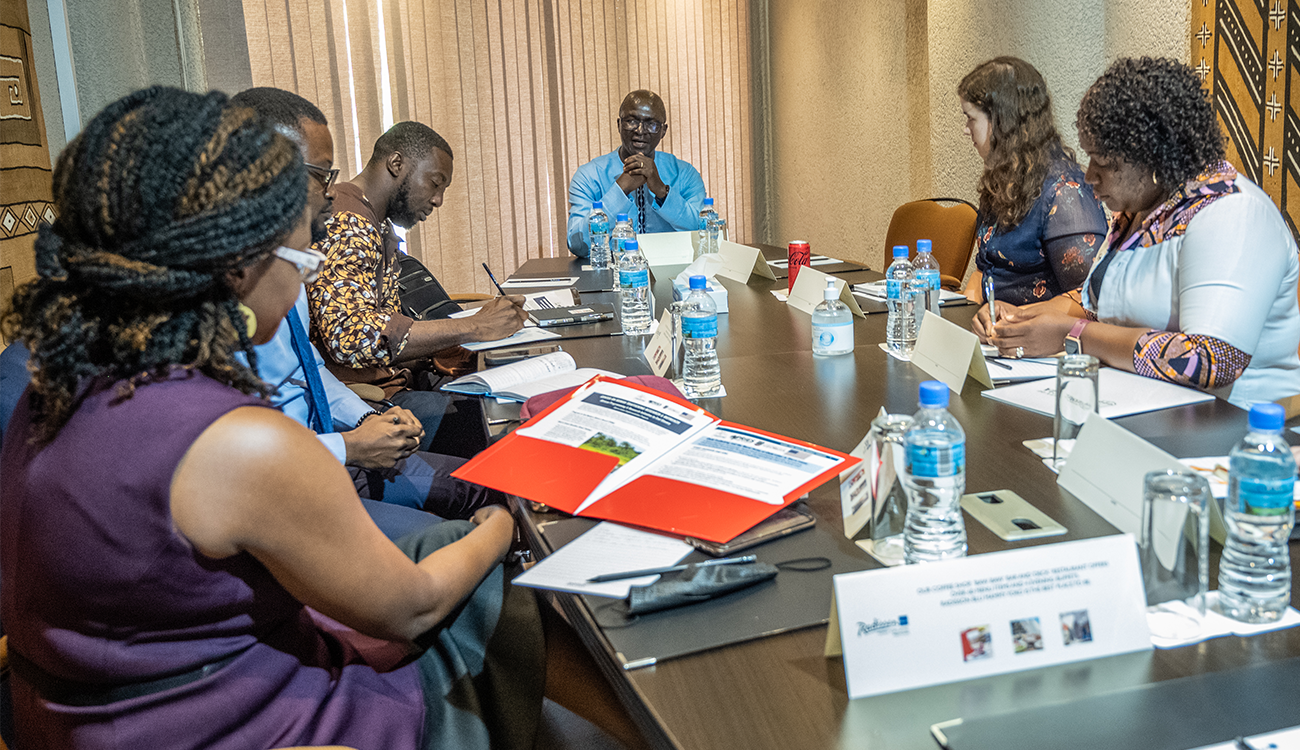
“Our interventions have to be tailored to the local geography and culture. That is why our team is both interdisciplinary and international in nature,” Okech said.
In addition, CenHTRO works to reduce sex trafficking in Senegal as well as labor trafficking in Malawi and Zambia.
CenHTRO has also become a global leader in promoting focused, hybridized research and implementation methods through the Prevalence Reduction Innovation Forum, which it convenes in partnership with the U.S. Department of State Office to Monitor and Combat Trafficking in Persons. The forum oversees seven research projects in six countries across Africa, Asia, Central and South America that have tested groundbreaking survey methods—including specialized population estimation techniques and incorporating cross-disciplinary survey questions to gather robust data—to help ensure human trafficking cases are counted in a more reliable and valid manner.
“We also conduct independent monitoring and evaluation of our interventions for the sake of our learning and to assess our effectiveness,” Okech said. “As implementation scientists, we must be open to understand both the process and the outcomes of our work in a more systematic way and to be able to identify the aspects of our intervention that are responsible for greater success. This approach also helps us identify the areas in the community that we should focus on or that are more open or resistant to intervention and change.”
At the national level, CenHTRO advocated for a strong response by partnering with key Sierra Leone ministries and engaging both President Julius Maada Bio and Vice President Dr. Mohamed Juldeh Jalloh as figureheads. Bio, for example, gave keynote remarks during the country’s first conference on human trafficking, which CenHTRO helped fund and organize.
CenHTRO also played a significant role in advising on and advocating for Sierra Leone’s new Anti-Human Trafficking and Migrant Smuggling Act, which was signed into law in August 2022. The updated law strengthened the overall response to human trafficking and incorporated institutional measures called for in CenHTRO’s research.
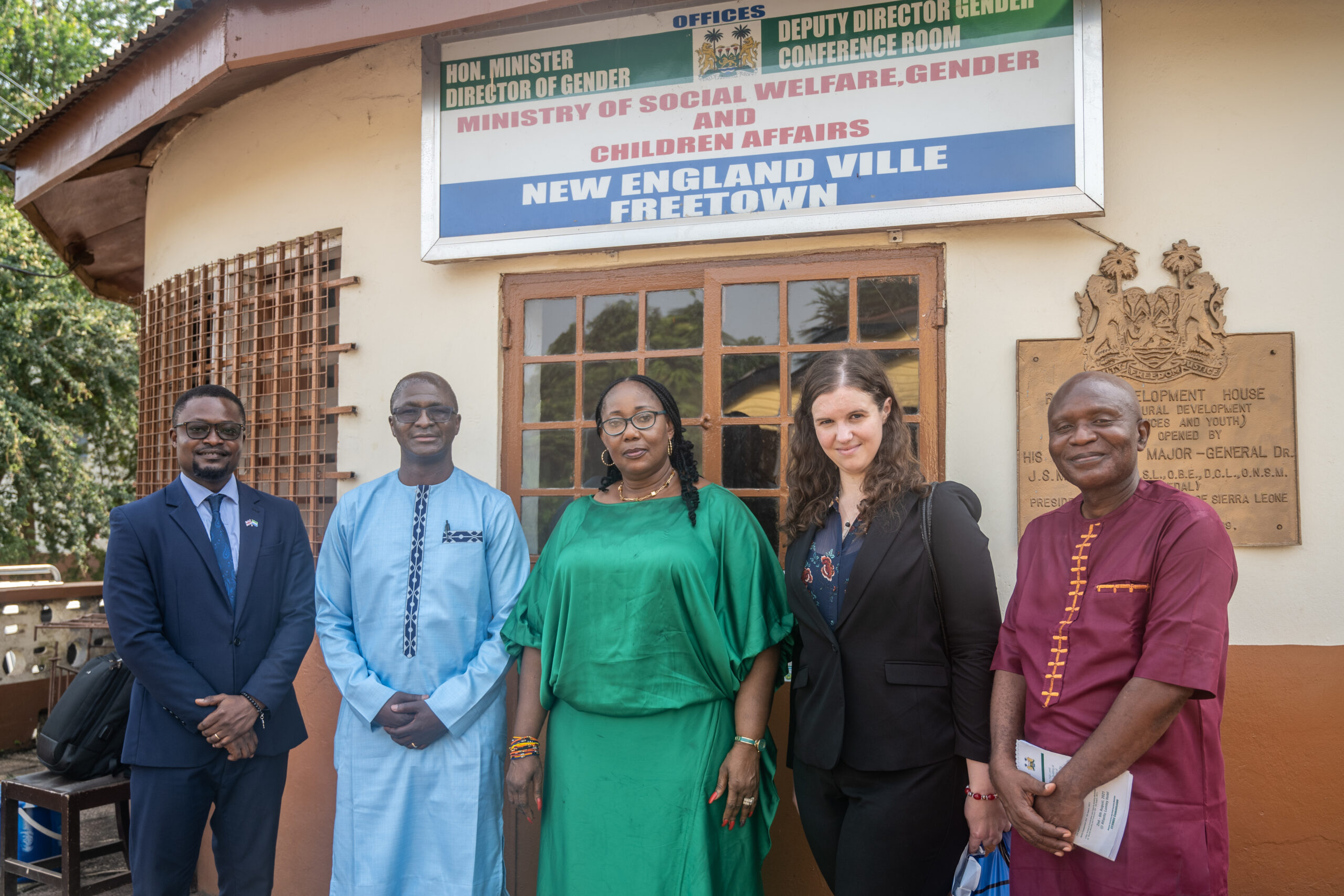
The Sierra Leone government worked alongside CenHTRO in early 2023 to host the Regional Conference of ECOWAS States on Ending Human Trafficking, which gathered high-level government officials from across West Africa to draft and sign the Freetown Roadmap. CenHTRO played a vital role in developing the roadmap, which sets regional anti-trafficking priorities and policies for years to come. These efforts have the potential to transform how West Africa combats human trafficking and affect the lives of millions of vulnerable people.
Paramount Chiefs—highly influential traditional leaders in the country—led a local charge to improve the identification of child trafficking cases, increase referrals of survivors to social services and build local awareness of the issue. CenHTRO worked alongside the Chiefs to write community bylaws that specifically addressed child trafficking and monitored informal fostering situations.
Theory in practice
Creating evidence for CenHTRO’s work begins by identifying human trafficking hotspots. In Sierra Leone, center personnel met with government officials, social workers, grassroots leaders and survivors of human trafficking—people with close knowledge of how the problem occurs in their particular context. This led the center to focus on child trafficking in four districts: Kailahun, Kambia, Kenema and Kono. It also identifies drivers and facilitators of the problem as well as strengths and resources within countries or communities. These help put the prevalence data into better context.
Local research partners assisted CenHTRO in creating a large-scale household survey, focus groups and key informant interviews. In addition to helping to capture the prevalence of child trafficking, the mixed-method study highlighted what was required of international, national, regional and local actors to reduce it in Sierra Leone. CenHTRO’s report included specific recommendations for improving support for survivors of child trafficking and strengthening laws to prevent it.
“CenHTRO’s research in Sierra Leone was landmark because we had not had any such research in this country,” said Dehunge Shiaka, executive director of the Anti-Trafficking in Persons Task Force in Sierra Leone. “That was a big step for us, and it has informed us on interventions we must take to ensure that we are able to combat human trafficking. As a government, we must get the policies right. Within that, we can design programs for prevention and response.”
For CenHTRO, research is just the first step.
“As partners and collaborators, our work doesn’t stop when the research is complete,” Okech said. “The recommendations we make shouldn’t stay in the report. We set it as our duty to work with people in-country so that the research leads to responses that address human trafficking effectively and systematically.”
The response CenHTRO marshaled involved everyday people in rural villages and members of Sierra Leone’s highest government offices.
“We have one bylaw for every district now. Any child going to a foster parent must be registered. That cautions everybody, and it minimizes or stops child trafficking. I have seen that. It is not as rampant as it was. Gradually, we are succeeding.”
– Paramount Chief Foday Steven Fabah of the Kenema District in Sierra Leone’s Eastern Province
“We have one bylaw for every district now. Any child going to a foster parent must be registered,” said Paramount Chief Foday Steven Fabah of the Kenema District in Sierra Leone’s Eastern Province. “That cautions everybody, and it minimizes or stops child trafficking. I have seen that. It is not as rampant as it was. Gradually, we are succeeding.”
CenHTRO worked with village parent groups and child welfare committees across Sierra Leone to become watchful of children in potential trafficking situations and spread knowledge within their communities; their vigilance directly helped Baindu’s daughter receive the help she needed.
To help heal from her experiences, Baindu’s daughter was taken to a recovery shelter in Sierra Leone’s capital, Freetown, where she was cared for by social workers trained in trauma-informed practices. Baindu met with her daughter at the shelter. Counseled by therapists, they prepared to return home. As CenHTRO’s research noted that poor families required additional post-trafficking support, the family received school supplies and food. Baindu received income-generating support, meaning social workers helped her buy goods to sell at her local market. This small amount of help, she said, relieved the economic pressure on her family.
Today, Baindu’s daughter is attending school and doing well.
“I think we can make the impact we make because, first of all, we listen,” Okech said. “Rather than assuming we know what’s best, we listen to local people. Their knowledge helps us create programs that really work. More importantly, we listen to survivors of human trafficking and follow their lead. They understand this problem better than anyone. Human trafficking is a massive, global problem, but we can’t forget that it’s about real people and real lives. And those people must be at the heart of any effort to stop human trafficking. We couple what we hear with our own research to address the problem in the most scientific and grounded approach possible.
“This work is difficult, but in that sense, it’s not complicated. It’s what inspires my team and me to keep going.”



